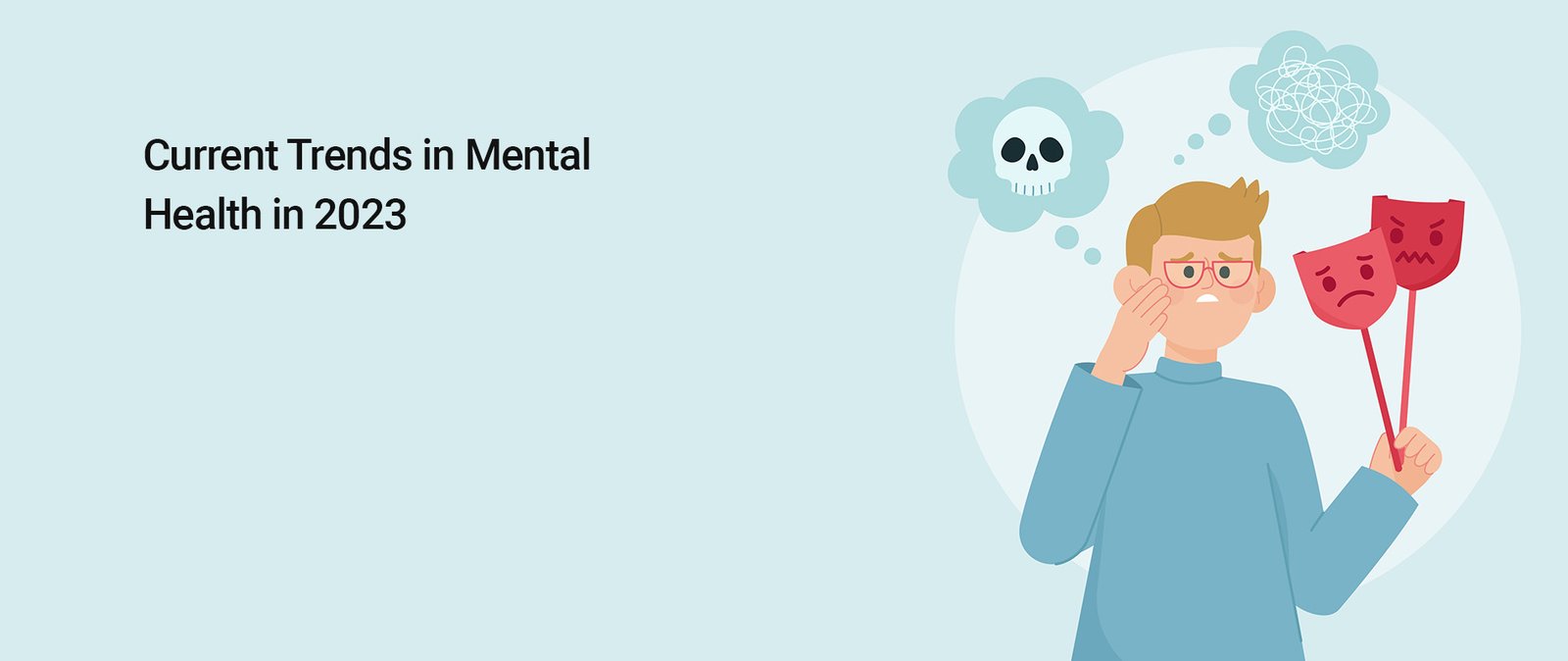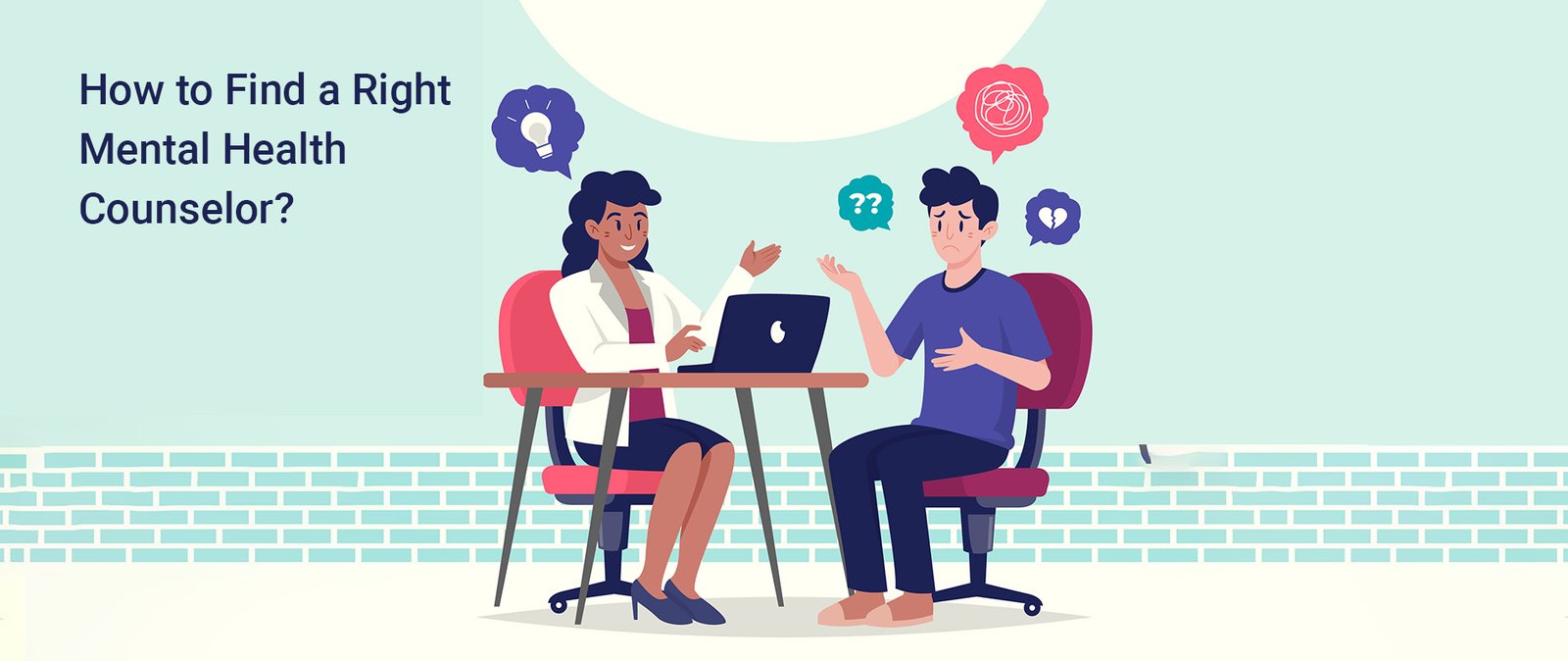Table of Contents
Mental Health Trends
In the year 2020, we experienced a global pandemic, which increased the mental health issues such as anxiety, depression, etc. The same year brought a topic ahead that isn’t always talked about to the forefront of discussions everywhere. The topic was – mental health. The year 2020 taught us that things are uncertain and nothing is permanent! Time changes and you have to mold with it.
Mental health is a major issue in our country. It is also one of the major tabooed topics in India. In 2017, an estimation of the burden of mental health conditions for the states across India revealed that as many as 197.3 million people are required to care for mental health conditions. And yet, despite the prevalence of mental health problems and illnesses, many people still suffer alone because they’re afraid to speak up or seek help due to the stigma associated with mental illness. Thankfully, we’ve made a lot of progress as a nation when it comes to talking about these issues openly—but there’s still more work that needs to be done! If you’re interested in learning more about some of the current trends in this area, keep reading the article ahead!
10 Mental Health Trends to Watch in 2023
Many people believe that mental health only refers to mental illness. But, that’s not true! Mental health does not only refer to mental illnesses. Mental health includes daily activities, attitudes, beliefs, and anything that is directly or indirectly related to mental well-being. Just because mental health is rarely as visible as physical health, it doesn’t mean that it is any less important or any easier to bear. One needs to take a constant check on mental health as we do on our physical health.
Many things can influence a person’s mental health and many different ways that mental health can be treated. Today, it is vital to talk about mental health in India because talking about mental health raises awareness, lowers the stigma, and encourages others to seek treatment for their own potential mental health issues.
Here are a few mental health trends that can emerge in the upcoming year 2023 –
1. Use Of Technology Will Increase
The use of technology to support mental health is a trend that has been gaining momentum for some time. People are creating various apps by which they provide counseling services, track your mood, or remind you to take medicines on time. It’s not only about these apps but now some tools help with diagnosing and treating mental health conditions with therapy sessions. At the same time, there are few games designed to help people cope with anxiety, mindfulness apps that alert you when it’s time for self-care, and even an artificial intelligence avatar that can act as a therapist without the need for face-to-face interaction or expensive therapy sessions. Many apps help you relax with the help of meditation by using various sounds and techniques. Many experts believe this digital approach to treating mental health will continue in 2023 as well.
2. Employee mental health at the workplace will become a crucial factor
One of the major sources of getting stress, anxiety, and depression is the workplace. According to data from the Kaiser Family Foundation, 31.6% of adults reported symptoms of anxiety and/or depression in October 2021. From an employer’s point of view, mental health challenges can impact retention, productivity, and job performance. Many forward-thinking workplaces recognize the benefits of investing in the mental health and wellness of their employees and data supports this. Research shows that employees who are mentally and physically well have a positive impact on everything, from productivity to retention, workplace satisfaction, job performance, etc. Prioritizing the well-being of employees is not only a good thing from a people standpoint but a business standpoint. This can come in many forms: counseling resources for employees, recreational activities, group activity sessions, availability of apps or technology tools to promote positive employee mental health, the allotment of “mental health days”, or the utilization of workplace mental health education programs.
3. More companies will adopt mental health programs
A mentally fit employee performs better than a mentally ill one. Unfortunately, most companies don’t realize that helping employees deal with common stressors like daily commute times or being overworked is necessary. It not only helps to increase employee satisfaction and performance at work but also reduces absenteeism and lost productivity. And as more companies adopt mental health programs, we can expect to see those numbers grow even further. Moreover, when companies implement these programs they can expect some unexpected benefits such as improved employee morale that translates into better retention rates; potentially lower healthcare costs due to decreased absenteeism; attractive perks for prospective job candidates who might want to take advantage of them; and greater productivity among current employees who feel supported by their employer in this way.
4. Focusing on the young generation’s mental health
Young generation is going to create a future for our country when they grow up. So, these people should be the main target to spread mental health awareness. Also, this is the generation who suffer the most from some or the other mental health condition or distress. Spreading awareness among them will lead to awareness in society and reduce the stigma associated with it.
5. Reducing the stigma related to mental health
This is one of the major targets in the year 2023. Many mental health conditions become undiagnosed because people are afraid of talking about them. People often keep on beating the bushes than focusing on the actual problems because of the stigma. Once the stigma reduces, it will become easier for others to talk about it and seek help openly. The stigma can be reduced via advertisements, street plays, seminars, etc.
6. Making people aware of different mental health conditions
Many times, people become confused about mental health conditions. E.g – If a person is afraid of elevators, people often say – “He has PHOBIA of the elevators”; or if a lady is feeling sad for a few days, people say that “She is DEPRESSED” This is clearly because of the lack of knowledge of these disorders and the feeling. They don’t try to understand the difference. Choosing words wisely is necessary. But, it will happen only if people get knowledge about such mental health conditions. So, knowing about various mental health conditions is the first and foremost step.
7. Making people aware of different healthcare professionals
Many times, people get confused between a Psychologist, a Psychiatric, a counselor, or a social worker. They think that all of them mean the same. It is necessary to know the difference between them to seek help from the right person. This awareness can be spread by making use of social media, newspapers, arranging various lectures, etc.
8. Making more opportunities for treatment and support
Seeking the right treatment and support is crucial for any mental health condition or distress. According to the National Alliance on Mental Illness, there are more opportunities for treatment and support than ever before. One reason for this is that there are more resources available. Along with that, there are new treatments available. As well as support groups, open forums for discussion and other programs designed to help people with mental health conditions manage their symptoms and recover from trauma or stressors in their lives—all of which can help them live more productive lives. Additionally, many people are now aware that mental health conditions come in many different forms: There is no one-size-fits-all solution for managing these issues, so it’s important for everyone who experiences a mental illness to seek out appropriate interventions that work best for them—whether those interventions involve medication or therapy or some combination of both! It is necessary to seek help from the right source.
9. Making mental health conversations a bigger part at the national level
Mental health concerns are at the forefront of our national conversation. Recently, many people are talking about mental health, seeking help for mental health-related concerns, and being open about their own experiences with a mental illness. This is an encouraging and positive sign that we’re becoming more aware of the importance of taking care of our minds—and one another’s minds. Mental health is something that needs to be discussed on a national level.
10. Making mental health a dinner table dialogue
To make mental health that big to go on a national level, it should start from your home. Start discussing mental health every day with your family members. If anybody is suffering from anything, encourage them to seek help and normalize taking therapy sessions. Conversations about mental wellness may continue to increase, as we look closely at some of the lingering effects of changes in our society. By discussing mental health openly with family members, families can proactively address any challenges that may emerge and create space for identifying healthy ways to cope with adversity. Start with your home!
Predictions for the future of Mental Health
Despite India being the first few to put in place a structural National Mental Health Programme in the early 1980s, India still is on a back foot while considering mental health. As per the data gathered by NIMHANS a few years back, India had about 100 million people dealing with various mental health issues.
Mental health issues affect a person’s physical output, thinking capacity, behavior, emotional stability, etc. If it is left unchecked, mental health issues such as depression, and anxiety may persist. Since the battle against mental health problems, is an everyday and ongoing challenge; one needs to have a sustained support mechanism to deal with it effectively.
Here are a few predictions for the future of mental health –
- The digital era
- More organizations giving preference to mental health
- The increased need of counselors, psychologists, Psychiatrists or other mental health professionals
- More fields are available in India
- More educational institutes providing mental health education
- Better mental health education
- Artificial intelligence-driven technology
- Making use of social media to spread awareness
The Bottom Line
While talking about mental health openly, it is important to understand, that there is nothing wrong with us, and there is no shame in having a mental illness, we are not crazy, we are human beings. No one should ever be ashamed to be struggling with mental health because most people around the world will struggle with their mental health at least once in their lifetime. Mental illness is not visible, and unfortunately, because of this, it is far too easy to classify them as fake and the people who have mental illnesses as simply crazy. This misunderstanding comes from a lack of education and focuses on mental health.
Today, it is important to talk about mental health in India because talking about mental health raises awareness, lowers the stigma, and encourages others to seek treatment for their own potential mental health issues. So, talk about it, and seek help!
Seeking Mental Health Counselling?
If you or your loved one is suffering from any distress or mental health condition, we are here to help you. We provide the best mental health counseling services for you or your loved one. So, don’t be ashamed. Be open, and seek help. To book an appointment, please click on the link here









